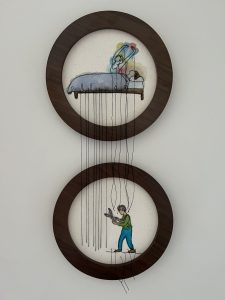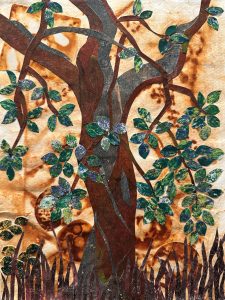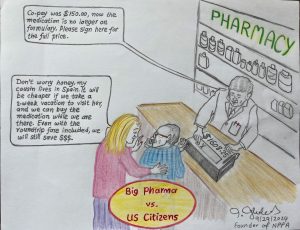- Home
- /
- Latest Voices
- /
- Page 12
Latest Voices
Hospice Angels
I would not have survived caring for my parents at the end of their lives without the help of my hospice angels. Ma spent the final 10 days of her life in a palliative care facility; Dad endured the last three months of his life getting at-home hospice care. The individuals from hospice—nurses, occupational and physical therapists, counselors, and aides—not only supported my parents but also gave me the love and care I desperately needed.
September More Voices: Palliative and Hospice Care
Dear readers,
My thoughts and feelings about palliative and hospice care took hold during medical school and residency training.
I was a medical student during the AIDS epidemic of the mid-1980s, when our Bronx hospital admitted a succession of patients infected with HIV, a virus that compromised their immune systems and made them vulnerable to a host of infections.
They came to the emergency room short of breath, feverish, somnolent, unable to see properly, convulsing, soiling themselves with intractable diarrhea…The list of possibilities was long and scary.
These patients, invariably young, were all going to die.
The Waiting Room
I recently spent some time in the waiting room of a hospital, while my husband was having surgery. As I sat there, I was patting myself on the back for being organized for this little jaunt. I had remembered a wheeled suitcase in which to store hubby’s belongings while he was in the OR, I’d packed some nibbles for myself so I wouldn’t have to go down to the cafeteria if I didn’t want to, and I’d made sure I had my my phone with me.
Then I suddenly realized that what I hadn’t thought to bring was a phone
Watching for Survival
While I was driving to work on a sunny Friday morning many years ago, the opening music for the StoryCorps broadcast streamed from the radio. I raised the volume and listened. A daughter asked her father how he’d made it out of a psychiatric hospital where he received shock treatments. He had been committed for insanity at age 22. He replied simply that he watched television to see how “normal” people acted and mimicked what he saw. Eventually, the staff released him.
The interview ended. I lowered the volume on the radio and reflected on this man’s smarts and the
Skeptical
I was in the process of leaving my first practice after residency, after three years at a rural community health center in western New York.
Saying goodbye to patients is emotional and takes extra time. Most patients expressed gratitude. Some brought small tangible gifts.
The Bipolar Butterfly
It’s time for our last psychiatric patient of the day in rural Florida. It’s 4:00 p.m., and by now the cows have been fed and the crops have been harvested.
Suddenly, there was a heavy tapping at the door and a swift shuffling of feet. A loud voice erupted, “Doc, I gotta talk to you!”
Checking Out, Going Home
I learned it takes a sense of humor to survive a hospital stay. Lined up on gurneys, flat on our backs, the three of us wait to be put through our paces on some testing machine or other. Riffing off each other, I say aloud that I feel as if I’m in a used car lot. A second person says they want our parts. The third says, “Parts, I ain’t got no parts.”
The Cardiologist
Forty-four years ago, my husband changed jobs and I followed him—moving from a major university on the East Coast to the Coronary Care Unit (CCU) at a small community hospital in the Midwest.
Patients admitted with chest pain spent at least three days with us to see if their cardiac enzymes rose, indicating a heart muscle injury. Oxygen, morphine, antiarrhythmic medications, and defibrillators were our best friends. The nurse-to-patient ratio was about 1:3, and as we monitored our patients’ every heartbeat, we had time to also listen to their concerns and talk with their families.
An Anti-Racism Pill?
Years ago, I had a bedridden patient—Mr. T—with extremely advanced Parkinson’s disease.
He was Caucasian, and the nurses warned me that he harbored extreme nationalist tendencies. Most of the caregivers in his nursing home were female and either immigrants from Africa or Black Americans. He was utterly cruel in his treatment of them. When they’d help transfer him from his bed to a wheelchair, for example, he tried to kick or punch them and issued a stream of profanities. His use of the B-word and the N-word was commonplace.










